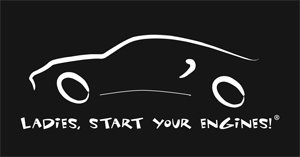Every time you start your vehicle you see a bunch of lights that come on on the dash.
Most of them go out after a few seconds, once the computers have done their
initial scan of the systems, but what happens if a light stays on or a light
comes on while you’re driving? Should you care, or are they just “idiot”
lights?
I think that a lot of people like to ignore problems with
their vehicle because they are either afraid they’ll get ripped off if they take it to a shop, or they don’t want
to think about how much it will cost to fix it. That being said, here are some
lights that you SHOULD NOT ignore.
Red Oil Light:
This light comes on when there is a problem with the oil pressure in the
engine. Because the oil is like the blood of the vehicle, it’s important to
keep it changed and full. If this light comes on while you are driving you
should IMMEDIATELY pull over and turn the vehicle off. This light is the last
warning before engine damage can happen, not the “you’ve got 50 miles before
you need to get it looked at” light. If the oil is low, it’s possible that you
could add oil and see if the light goes out. Most likely you’ll need a tow to a
shop to see what the problem is.
Check Engine Light:
This is a light that a lot of people ignore if the vehicle is driving okay. Unfortunately,
this could make the problem worse and possibly cause an expensive repair down the
line. The check engine light comes on when a sensor gives a bad reading.
Sometimes the light can be on for something as simple as not tightening your
gas cap, but other times it could be something more serious. There are many
places now that will read this code for free. You can even purchase a code
reader like the one from CarMD for about $100 to tell you the code. You can
then look up this code to see what the possible problems are. You always want
to make sure that you have a trained technician verify the problem before
replacing parts.
Battery Light:
The battery light comes on when there is a problem with the charging system of
the vehicle. This could mean a problem with the battery, the alternator or the
belt that drives it. Driving with the battery light on could cause the vehicle
to just stop running. Many times a simple jump will not be the answer to fixing
this problem so be aware they you may need to be towed to a shop for repairs.
You should always have the battery and the alternator tested as one can cause
damage to the other.

 Coolant Light or
Temperature Gauge: If this light comes on or the temperature gauge reads
closer to the H than the C it means that you have an overheating problem. You
should never let the gauge go into the red as this can cause engine damage.
This is another light or indicator that tells you to pull the vehicle over and
shut it off. You should not drive the
vehicle until it cools and coolant/antifreeze is added. Remember, you should
never open the cap to add coolant/antifreeze while the engine is hot or you could suffer serious burns.
Coolant Light or
Temperature Gauge: If this light comes on or the temperature gauge reads
closer to the H than the C it means that you have an overheating problem. You
should never let the gauge go into the red as this can cause engine damage.
This is another light or indicator that tells you to pull the vehicle over and
shut it off. You should not drive the
vehicle until it cools and coolant/antifreeze is added. Remember, you should
never open the cap to add coolant/antifreeze while the engine is hot or you could suffer serious burns.
These are just four of the lights you should watch and take action if they come on. Look in your owner's manual for more information and what other lights may indicate. Knowing when to stop driving before damaging your vehicle and preventing costly repairs will help you be an informed driver and keep you safe on the road.







No comments:
Post a Comment